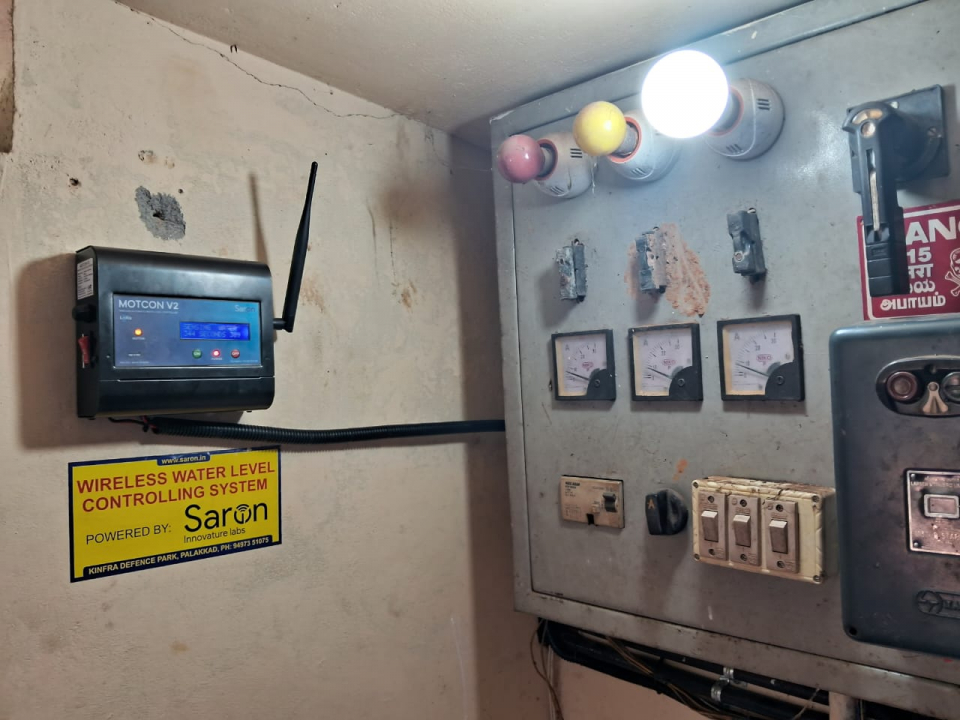The Kerala Rural Water Supply and Sanitation Agency (KRWSA) has advocated to the Government the necessity of budgetary allocations for comprehensive grey water treatment and management initiatives in colonies and institutions inhabited by vulnerable groups. Responding to this, the Government of Kerala has earmarked a budget provision of INR 100 Lakhs for the implementation of Grey water Management and Treatment Systems in areas predominantly occupied by vulnerable communities during the fiscal year 2022-2023. A significant step towards this endeavour has been the installation of a Grey water treatment and management system in the hostel attached with the Rajiv Gandhi Memorial Residential Higher Secondary School, situated in the Noolpuzha Grama Panchayat of Wayanadu District. Designed to house tribal students, the hostel currently accommodates 250 students with an additional 600 students visiting for lunch during the daytime. Equipped with a canteen facility, the hostel faced challenges related to wastewater generated from bathrooms, the kitchen, and the canteen. This wastewater was previously drained into a nearby canal, adversely affecting the health of inhabitants and contributing to waterborne diseases. Furthermore, it caused pollution in nearby water bodies, prompting local residents to raise concerns and protests against the unaddressed wastewater issues. In response to this critical situation, KRWSA has proposed the implementation of a Decentralized Wastewater Treatment System (DEWATS). The hostel and canteen collectively generate 20,000 liters of wastewater per day. The system involves the collection of wastewater from the residential hostel and canteen in a settler tank. Subsequently, it is conveyed to an anaerobic baffled reactor (ABR) and then to an anaerobic filter (AF). The treated water then passes through a horizontal plant gravel filter (HPGF) before being collected in a chamber. An automatic pumping system is installed to irrigate plants and vegetables cultivated in the vicinity. The DEWATS unit, with dimensions of 19 meters in length and 3 meters in width, boasts a capacity of 15 million liters per day (mld). An expenditure of 20 lakhs has been incurred for the implementation of these units. To ensure the success and sustainability of this initiative, the school has undertaken awareness programs for its students. The operation and management of the DEWATS system are carried out by student residents who are also members of the Jalasree club. This holistic approach not only addresses
KRWSA Successfully Implements Solar-Based On-Grid Pumping System in Rural Water Supply Schemes in Tribal Grama Panchayats
Solar Based Water Control System. KRWSA on a pilot basis developed and installed Solar Based Water Pumping Control System under the Research and Development Component of Jalanidhi State Plan. Jalanidhi water supply schemes are generally located at rural remote areas. The distance between the pumping station and service reservoirs are always more than one kilo meter. Manual control of water level in the reservoir with pumping time is not practical. There is huge water loss due to overflow in service reservoirs which leads to excess use of energy resulting increase in Operations and Maintenance Cost. Few of the user communities are at present using robotic pump operating system, but due to the high cost of large cable length and there are chances of the causing damages in long cable, majority of the user groups are not adopting the system. Under this circumstance, KRWSA under R & D component discussed with start ups to develop and appropriate technology for modernisation of water pumping control. The startup firms has expressed their interest in associating with KRWSA for supporting the user groups in simpler and cost effective operating technologies. Hence, one of the startup agency has developed a sensor based operation mechanism for small schemes for saving the cost of operator charges and water loss due to over flow there by reducing the energy consumption. This is a Low Power, Wide Area networking protocol designed to wirelessly connect battery operated ‘things’ to the internet, to connect sensors, gateways, machines, devices etc. wirelessly to the cloud, based water level control using solar power and automated pump operating system. The suggestion was to install four each units in remote community based water supply scheme areas in the jurisdiction under each of the Regional Project Management Units. Our Kannur Regional office has piloted this system in each of the Community based water supply schemes in all four district under their control. They have installed one system in Adhur Water Supply Scheme in Delampadi Grama Panchayat in Kasargode District serving water to 530 households, Chemmannu Water Supply Scheme in Udayagiri Grama Panchayat in Kannur District serving water to 28 households, Muzhvannur Water Supply scheme in Vellamunda Grama Panchayat in Wayanadu District serving water to 750 households and Dahasamini Water Supply Scheme in Puthupadi Grama Panchayat in Kozhikode District serving water to 76 households. The system is functioning well and beneficiary communities are satisfied with remote system. This has helped the user group to get water 24 X 7 and also ensure distribution in high terrains. Solar based pump on and off automatically when the water in reservoir level falls down fixed limit. User community is benefited on operational cost and also time for going to remote location to operate the motor. This has ensured 24 x7 Water supply in every households. They are now satisfied as the system is running in solar power and they cannot scared again for the electricity failure caused intermittently. Solar based pumping and water control system may be replicated and scaled up to other schemes to give the user communities a low cost water tariff.






